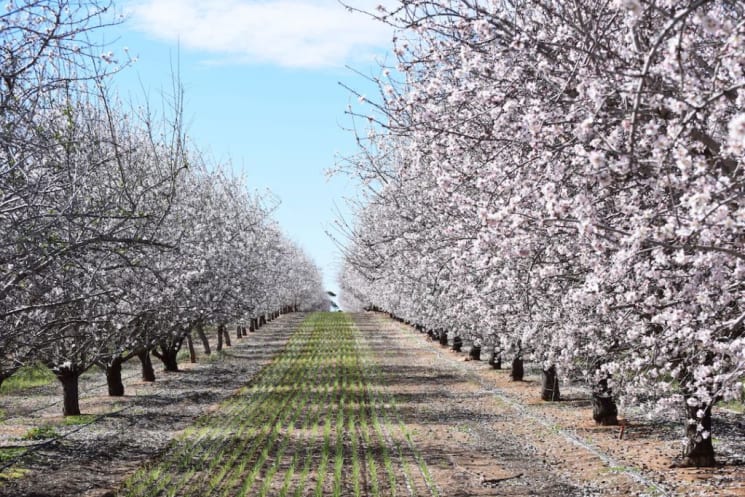A SUSTAINABILITY trial in a neighbouring region focused on making use of old trees could change the way almonds are grown in the Riverland and around Australia.
Former Almond Board of Australia (ABA) chairman Neale Bennett has partnered with the ABA and South Australian Research and Development Institute (SARDI) to undertake an orchard recycling project on his Merbein property.
The traditional method of orchard upgrades in Australia has involved removing old trees, burning them and ripping the ground in preparation for planting new trees.
The environmental impact of such practices has been brought into question in more recent times, with almond growers in California and Australia exploring more environmentally beneficial methods to achieve the same results.
Mr Bennett, who has been in the almond industry for more than 30 years, has been watching Californian growers undergo whole-orchard recycling projects for several years.
He was one of the early adopters to growing almonds in the Sunraysia and has a reputation for embracing new technology.
Mr Bennett said the trial was an exciting new chapter for his orchard.
“There is no doubt that we have an obligation to grow as sustainably as possible and the whole-of-orchard recycling trial is an important part of that,” he said.
The way we manage our orchards has changed enormously since I planted those first trees 30 years ago. I think some might underestimate our sustainability credentials.”
Almond orchard recycling trials have been successfully run in California to reduce carbon emissions as well as improve air quality and the orchard soil’s organic matter.
Ironically, Mr Bennett’s first patch of almonds, just under 3ha, will be the focus of the first orchard recycling trial conducted in Australia.
It will involve bulldozing the trees, mulching them and then returning the organic matter to the freshly ripped orchard floor before replanting.
ABA CEO Tim Jackson said the trial would support growers to integrate whole-orchard recycling into their redevelopment programs, with clear expectations around carbon farming, changes in soil health, irrigation-use efficiency and productivity improvements.
He said the recycling results on Californian soils have been widely embraced and are contributing to longer-term aspirations for the industry to become at least carbon neutral.
“Almond growers are all about embracing the most sustainable practices available and this trial is yet another example of that commitment,” he said.
The trial is based on the fact that almond trees accumulate significant amounts of carbon during their lifecycle.
When an orchard reaches the end of its commercial life, this resource is traditionally managed through burning as part of the orchard redevelopment.
While burning is a quick and effective means to clear debris from the site and can reduce pathogen load, it also releases a significant amount of carbon that could potentially be sequestered or at least incorporated to improve soil organic matter, fertility and help with the establishment and productivity of the new orchard.
The trial at the Bennett orchard aims to quantify the impact of whole-orchard recycling on the carbon footprint of an almond orchard, including the impact on carbon storage and turnover in the soil, soil greenhouse gas emissions and the carbon accumulation by the newly planted trees.
It will also assess any co-benefits such as improved irrigation-use efficiency and soil health, and potential negative impacts such as increased pressure from soil pathogens and potential for nitrogen drawdown.
Data collected will be used to inform the Australian Life Cycle Assessment and as data input into approved carbon market methodology.
Mr Jackson said the trial would complement the industry’s soon-to-be-launched sustainability framework that has been developed to equip industry members with the tools and knowledge to meet the expectations of today’s consumers.






